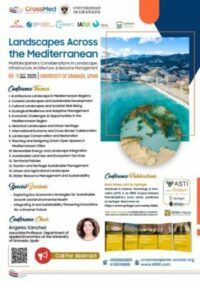ISSN (online): 2571-9408
Call of the Journal:
- Assessment and Protection of Cultural Heritage Masonry Structures
- Cultural Heritage | Current Threats and Opportunities
- Earth Architecture | Culture, Issues, and Solution for Its Conservation
- Energy Efficiency in Historic Buildings
- Geological Materials and Culture Heritage | Past, Present and Future
- Geosciences for Cultural Heritage and Archaeology
Mar
2021
The advent of the deep learning era brings about an increasing interest for artificial intelligence applications in diverse domains. Artificial Intelligence (AI) and archaeology, or Cultural Heritage (CH) in general, have already crossed paths in a number of occasions. From scientific visualization and data representation, to knowledge management, empowerment of research, digital applications for museums, sites and tourism, AI is expected to be ubiquitous and game-changing in the following decades. AI has already successfully appeared in a diverse set of CH applications, including element/mineral identification, virtual museums, historical document analysis, natural language processing, semantics and knowledge extraction, automated processes in digitization, recommenders, storytelling and personalization. This session aims to attract researchers in this strongly cross-disciplinary domain and give floor to the dialogue between AI and CH, towards the digital heritage of the future. Topics of interest in this session include, but are not limited to: AI in digital archaeology, digitization and on-site documentation; AI in digital cultural content/object analysis; AI in content-based classification and retrieval; AI in archaeometry and data analysis; AI in natural language processing and CH applications; AI in semantics and knowledge representation; AI in museums and cultural tourism; AI in virtual systems for education and tourism; Computational archaeology; Intelligent methods in spatial and temporal analysis; AI and simulations in archaeology and CH; Intelligent crowdsourcing approaches.
Keywords: artificial intelligence; machine learning; digital humanities.
Artificial Intelligence in Heritage Science
The advent of the deep learning era brings about an increasing interest for artificial intelligence applications in diverse domains. Artificial Intelligence (AI) and archaeology, or Cultural Heritage (CH) in general, have already crossed paths in a number of occasions. From scientific visualization and data representation, to knowledge management, empowerment of research, digital applications for museums, sites and tourism, AI is expected to be ubiquitous and game-changing in the following decades. AI has already successfully appeared in a diverse set of CH applications, including element/mineral identification, virtual museums, historical document analysis, natural language processing, semantics and knowledge extraction, automated processes in digitization, recommenders, storytelling and personalization. This session aims to attract researchers in this strongly cross-disciplinary domain and give floor to the dialogue between AI and CH, towards the digital heritage of the future. Topics of interest in this session include, but are not limited to: AI in digital archaeology, digitization and on-site documentation; AI in digital cultural content/object analysis; AI in content-based classification and retrieval; AI in archaeometry and data analysis; AI in natural language processing and CH applications; AI in semantics and knowledge representation; AI in museums and cultural tourism; AI in virtual systems for education and tourism; Computational archaeology; Intelligent methods in spatial and temporal analysis; AI and simulations in archaeology and CH; Intelligent crowdsourcing approaches.
Keywords: artificial intelligence; machine learning; digital humanities.
DOAJ, Norwegian Register for Scientific Journals, Series and Publishers (NSD), CLOCKSS (Digital Archive), e-Helvetica (Swiss National Library Digital Archive), Academic OneFile (Gale/Cengage Learning), Google Scholar, J-Gate (Informatics India), Science In Context (Gale/Cengage Learning).
Info at: www.mdpi.com/journal/heritage/apc
Guest Editor
Dr. George Pavlidis










